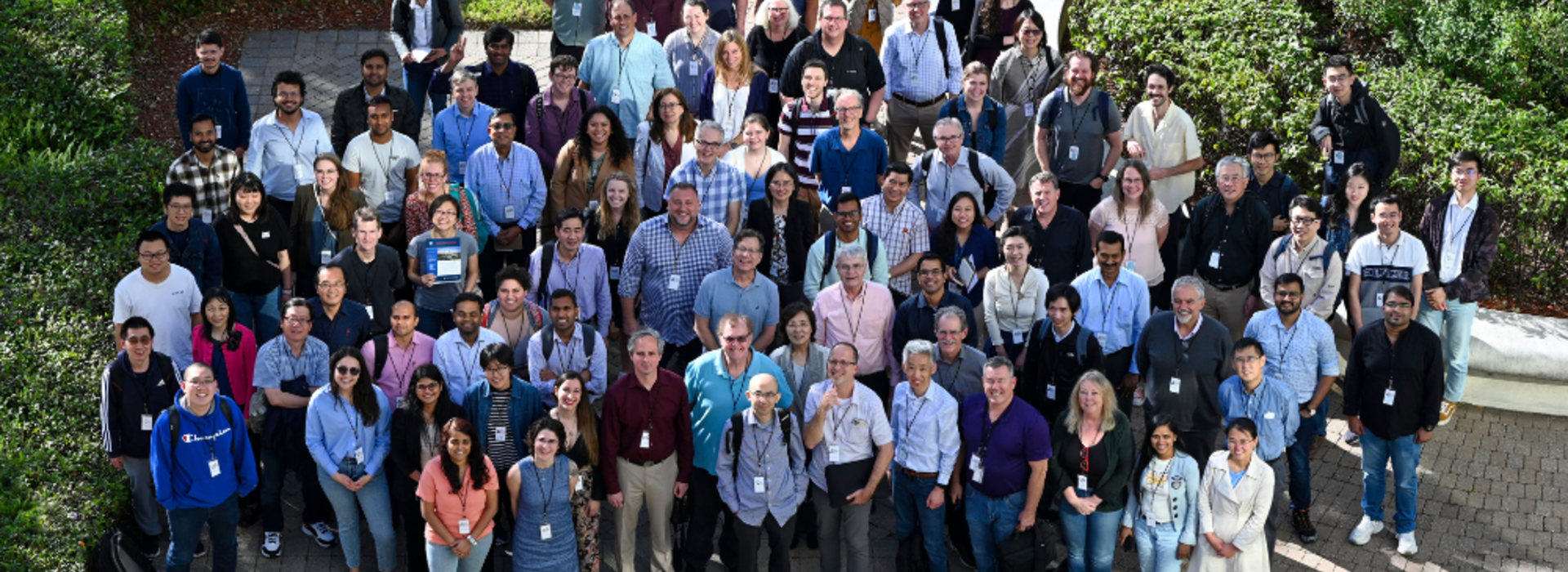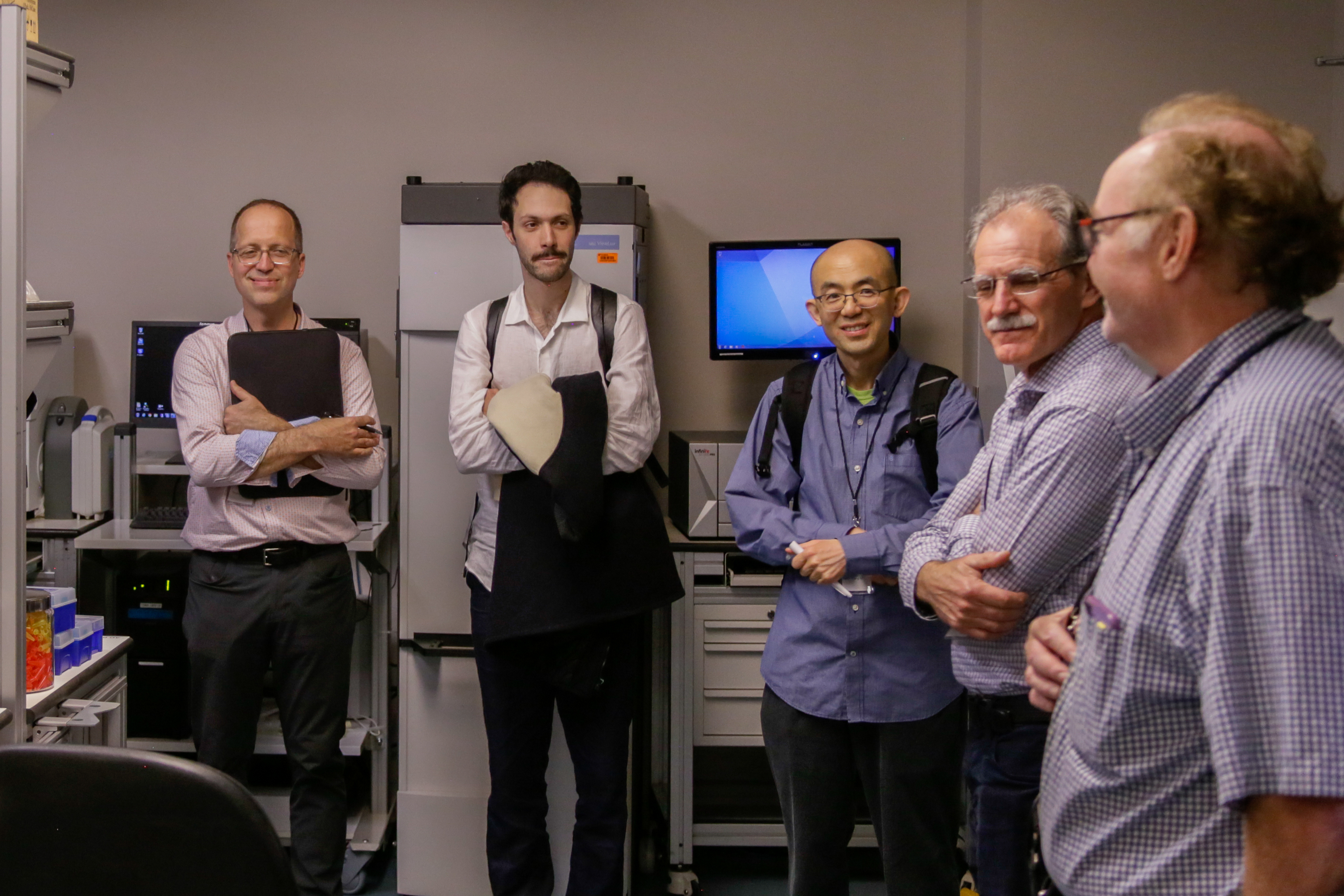
Midwest Antiviral Drug Discover Center Unites Researchers to Advance Drug Discovery
Midwest Antiviral Drug Discover Center Unites Researchers to Advance Drug Discovery
Headquartered at the University of Minnesota Medical School, the Midwest Antiviral Drug Discover Center is one of nine centers nationally developing antiviral treatments to prevent and prepare for future pandemics.
The University of Minnesota Medical School is home to the Midwest Antiviral Drug Discovery (AViDD) Center, one of nine AViDD Centers for Pathogens of Pandemic Concern established by the National Institute of Allergy and Infectious Diseases (NIAID). AViDD Centers were created to conduct “innovative, multidisciplinary research” in the development of antiviral treatments for SARS-CoV-2, better known as SARS2 or COVID-19, and other viruses with high potential to cause future pandemics.
The Midwest AViDD center recently celebrated its one-year anniversary. Led by co-principal investigators Dr. Fang Li and Dr. Reuben Harris, the Center brings together researchers from the U of M and sixteen other institutions across the country.
“Since the pandemic started, scientists across different disciplines have been collaborating to combat the pandemic,” Dr. Li explains. “The collaborations had been small-scale, but then in 2021, NIAID made the announcement of establishing nine AViDD Centers. I saw that this would be a good opportunity for scientists to be organized together.”
“The whole point of a center like this is to unite different people who have different expertise to try to use all that knowledge to advance drug discovery,” adds scientific coordinator Dr. Peter Dosa.
The Center is focused on five main projects, which all address SARS2 as well as other viruses of pandemic potential, including Ebola, Lassa and Zika virus.
“We’re targeting multiple viral processes, and we’ve got some promising chemical matter being worked on,” Dr. Harris says.
Dr. Harris’ team is developing assays to look at enzymes known as protease. Proteases help break down proteins, acting as tiny scissors used by viruses to cut up long viral proteins into smaller functional pieces that allow the virus to replicate and spread throughout the body. Protease inhibitors, like the SARS2 treatment Paxlovid, are commonly used in antiviral drugs, but viruses have ways of developing resistance.
“Where there is resistance, there is counter resistance,” Dr. Harris says. ”All successful viruses have figured out a way to navigate around our innate and adaptive immune responses.”
 Alongside Dr. Harris’ work tackling drug resistance, Dr. Li’s research team is working on developing treatments that block viruses from entering human cells. One way of doing this is through nanobodies, which are a unique type of small antibodies derived from camelid animals such as llamas and alpacas.
Alongside Dr. Harris’ work tackling drug resistance, Dr. Li’s research team is working on developing treatments that block viruses from entering human cells. One way of doing this is through nanobodies, which are a unique type of small antibodies derived from camelid animals such as llamas and alpacas.
"This is an exciting new type of therapeutic," emphasizes Dr. Li. "Nanobodies provide numerous advantages over conventional human antibodies thanks to their small size. For example, they can effectively bind to concealed target sites on viruses, penetrate human tissues efficiently to hunt down viruses and are produced at significantly lower costs. Moreover, they can be engineered to adapt swiftly to new viral variants. Additionally, there is potential for their utilization as a nasal spray to prevent or treat COVID-19."
The Midwest AViDD Center is working to ensure that additional therapies like protease inhibitors and nanobodies will be at the ready when new viruses arise, while also developing drugs that treat deadly endemic diseases that kill tens of thousands every year.
“It can take several years to make these drugs, and the drug will have to go through the drug-approval process, which can take some time,” Dr. Li explains. “One of the main goals of AViDD is to make the drug discovery process more efficient and effective.”
A number of factors like climate change, ease of international travel and humans moving into animal habitats lead researchers to believe that pandemics will be a common occurrence moving forward. But Dr. Dosa says that proactively developing drugs that are ready to treat patients at the first sign of an outbreak will limit the risk of a pandemic.
“When we’re designing drugs, we’re looking for broad-spectrum inhibitors that inhibit more than just the latest variant of COVID,” Dr. Dosa stresses. “If you find a pan-virus drug, then the odds are higher that the next virus that comes along can be treated immediately.”
Looking to the future, Dr. Li and the Midwest AViDD Center team are excited for the discoveries to come.
“We hope our center will produce better drugs that can go to clinical trials or enter the market to treat and prevent pandemic viruses,” Dr. Li reiterates. “We also hope that our expertise in drugs and drug discovery can be applied to other important human health problems such as cancer, diabetes or Alzheimer’s.”